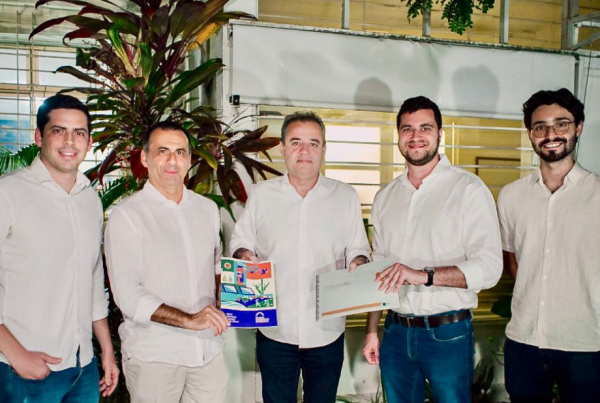Even with negligent actions by the federal government and the public in the face of the Covid-19 coronavirus advance, global and unilateral initiatives in the face of the scenario have been much faster and more effective than those in response to the climate crisis. For about 30 years, the international scientific community has been trying to coordinate efforts to reverse the increase in the planet’s average temperature. The collective response to the current pandemic, in turn, can provide important lessons for tackling climate change and other challenges of this century.
Coronaviruses are a group of viruses that are common in humans and are responsible for up to 30% of common colds. Corona comes from the Latin “crown”, because its surface looks like a crown when observed under an electron microscope. The Covid-19 outbreak began in China in late 2019 and reached pandemic status on March 11, 2020. One week later, confirmed cases of the disease had passed the 200,000 mark worldwide, affecting more than 150 countries. Although 81% of cases have been mild, more than 8,000 people have died as a result of severe pneumonia, which has mainly affected people aged 80 and older.
Outbreaks such as SARS in 2003 and MERS in 2012 together resulted in fewer than 2,000 deaths around the world. The global average, however, hides more than it reveals. Countries such as China and South Korea have adopted restrictive measures that have successfully lowered the new case count. On the other hand, in countries like Italy and Spain, the numbers continue to rise rapidly.
The coronavirus has transformed everyday life so significantly that the effects are visible from space. NASA and European Space Agency (ESA) pollution monitoring satellites have detected significant reductions in nitrogen dioxide (NO2) over China. Beginning January 23, 2020, Chinese authorities began blockading Wuhan (the outbreak’s place of origin) and other cities in the region in order to reduce the spread of the disease, which has resulted in significant reductions in air pollution.
In economic terms, these measures have resulted in reductions of between 15% and 40% in the output of China’s major industrial sectors compared to the same period last year. Taken together, reductions in China’s coal and oil consumption indicate a reduction in CO2 emissions of 25% or more, which is equivalent to about 6% of global greenhouse gas (GHG) emissions.
International measures aimed at reducing the spread of Covid-19 may save more lives due to reduced air pollution and climate change intensity than health complications caused by the virus. It is estimated that twenty times as many lives have been saved in China alone as have been lost to the virus so far.
“It isincorrect and imprudent to conclude that pandemics are beneficial to the climate or to the very health of humanity, given all the suffering and other negative consequences of social and economic disruption. However, such estimates act as a reminder of the hidden short- and long-term costs that surround our modern way of living.
In several countries around the world, as the number of Covid-19 cases grows rapidly, companies have authorized employees to work from home, international conferences and classes at schools and universities have been cancelled, and governments have issued guidelines to avoid crowded environments. Such sudden changes are driven by the broad recognition of an emergency.
The scientific community is offering clear warnings about what to do, both in the face of the pandemic and the climate crisis. Both issues involve public health, since climate change is already causing food and water shortages, migration problems, and other natural disasters caused by humanity itself. Changes in climate are also expected to further increase the number of epidemics, especially infectious diseases such as malaria and dengue fever.
Besides their global reach, the crises also share a common cause: the consumption of animal-based foods. In the case of the climate crisis, food of animal origin, especially beef, has a high carbon footprint and has contributed to raising the concentration of GHGs in the atmosphere. The main suspected cause of coronavirus, on the other hand, is the consumption of wild animals in Chinese markets. Rethinking eating habits, including the reduction and substitution of animal products, will be essential to contain both types of crisis.
According to a recent article published in Nature magazine, in order to limit average global warming to 1.5ºC above pre-industrial levels, countries will have to cut their emissions by more than 7% a year starting this year. At current rates (before the coronavirus), in 10 years the world will warm on average 1.5°C; in 25 years, 2°C. This means that governments, the private sector, and communities should work with a crisis scenario, committing four times as much effort as they have done so far – or three times as fast – to achieve compliance with the Paris Agreement.
“Unfortunately, society still seems unprepared for reality shocks like the fires in Australia or the Covid-19 pandemic. We are witnessing the collapse of health systems in many countries due to lack of beds and care capacity, which has increased the lethality of the pandemic. The same may happen with the intensification of climate change in the coming years. Resilience, therefore, involves thinking about the ability of the next generations to respond more quickly and minimize damage.
The cost of prevention will always be less than the cost of inaction. And at the stage the two crises are at, prevention efforts must be accompanied by measures to adapt to the existing and projected impact.
If the international community had taken its commitments since Paris in 2015 more seriously, just as it has for Covid-19 in recent weeks – taking into account the level of urgency that science says is necessary – we would probably have a drastically different future outlook.
Understanding what kind of risk one faces, whether as an individual, a country, a company, or the world, is essential in order to be prepared for the before, during, and after in a time of crisis. The pandemic has shown that we can act quickly, promoting changes in behavior and in economic activities, when there is societal interest and political will, at the same time as science strives to find a solution. May we know how to replicate the same formula to contain the climate crisis while there is still time.
*Cassia Moraes holds a master’s degree in public administration and development from Columbia University, is CEO of Youth Climate Leaders (YCL) and coordinator of networking and outreach at the Brazil Climate Center.
*Bruno Cunha is a post-doctoral fellow and research associate at CENERGIA (PPE/COPPE/UFRJ), an IPCC expert reviewer, and a member of the academic board of Youth Climate Leaders (YCL).




